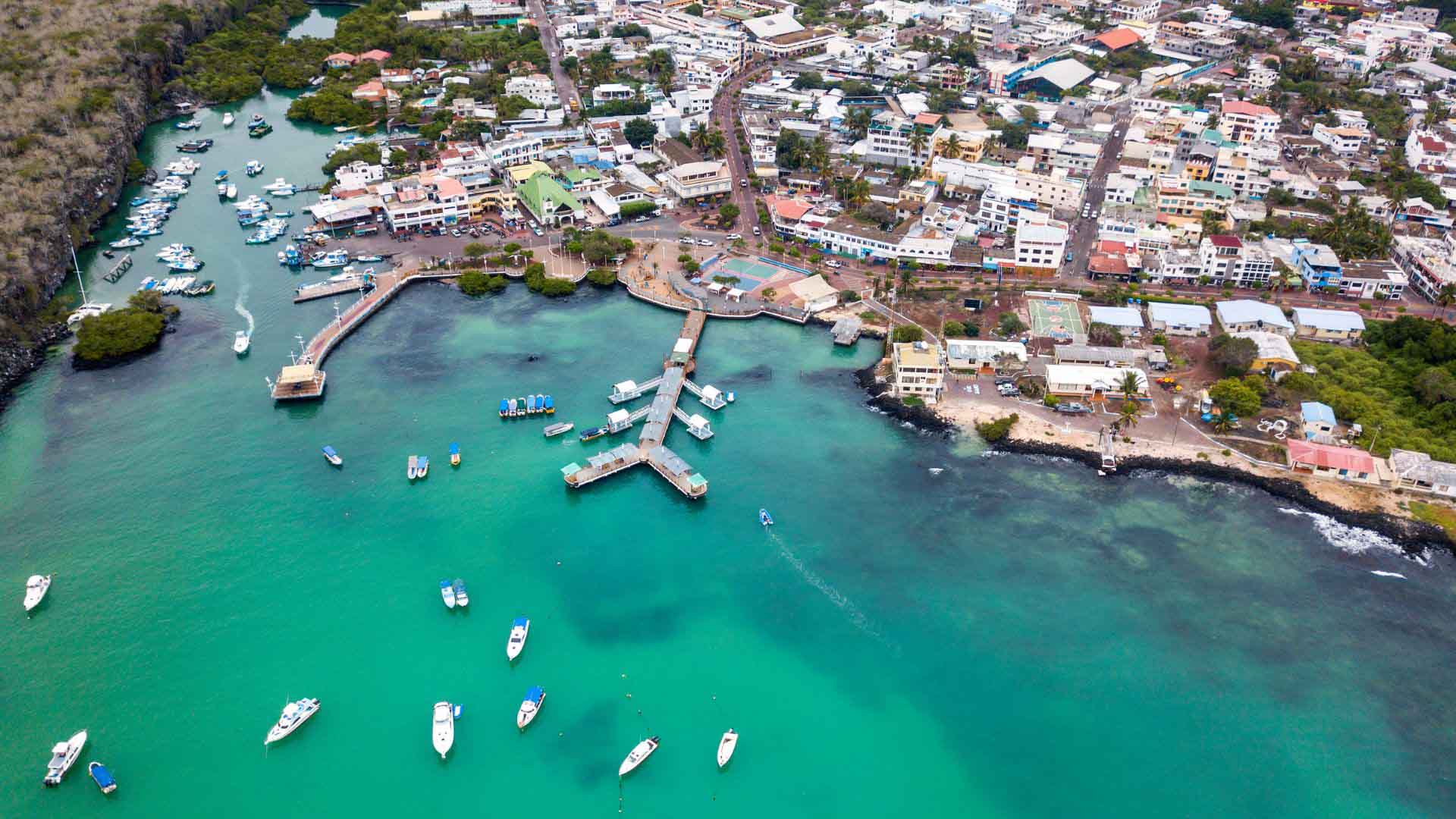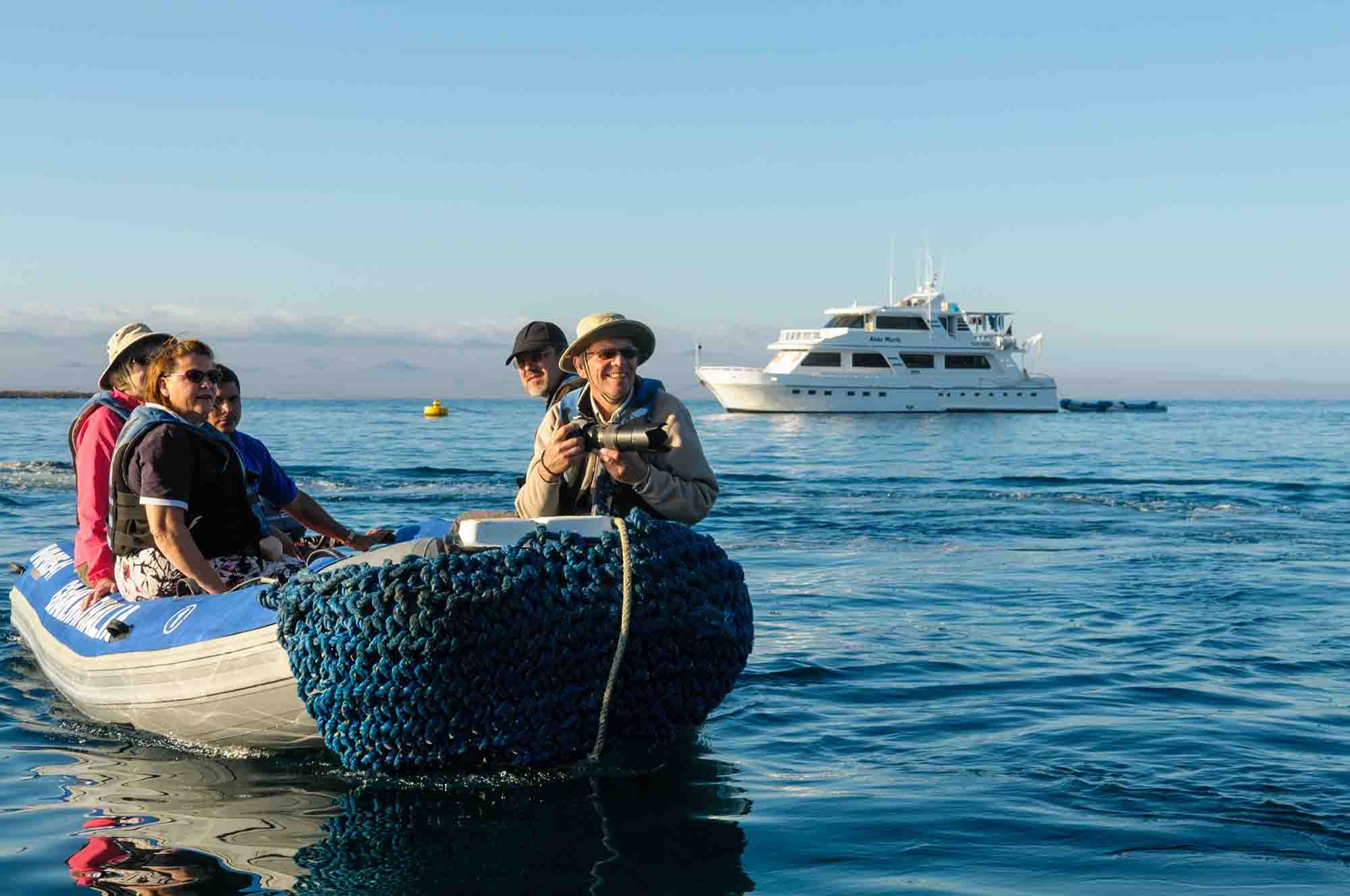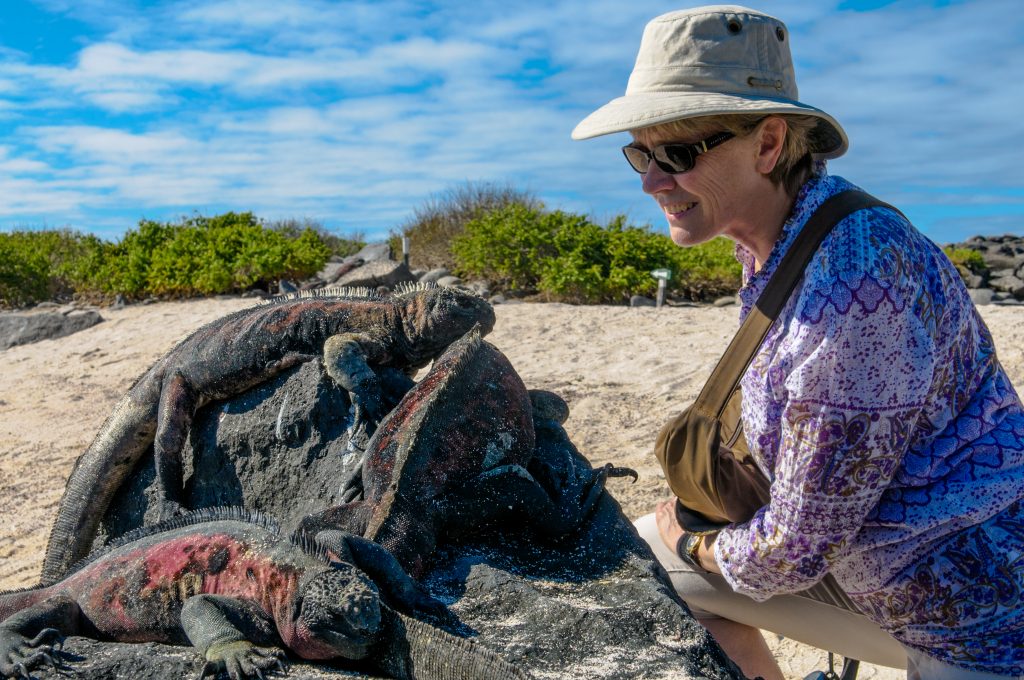Galapagos Activities: Guided Tours
Planning a trip can be hard. The Galapagos Islands offer unique adventures. Our guide will show you why choosing the right guided tour matters. Keep reading to find out more!
Role of Naturalist Guides in the Galapagos
Naturalist guides play a crucial role in the Galapagos, providing insights into the volcanic landscapes and unique wildlife. They help visitors explore the marine life through snorkeling and enable close encounters with giant tortoises, flamingoes, and blue-footed boobies.
Certification and Requirements
To become a naturalist guide in the Galapagos, one must pass an official guide course. This course covers many topics including history, geology, environmental education, and group management.
It also teaches about professional ethics and the local plants and animals. The course is rich in ecological knowledge which is crucial for guides.
The guide training benefits eco-tourism by blending conservation education with local expertise.
Recent changes limit this guide training to only legal residents of the Galapagos Islands. This move supports islanders by giving them a bigger role in tourism and educational efforts.
It ensures that those who live on the islands can share their unique understanding and commitment to conservation with visitors.
Categories of Naturalist Guides
Following the certification and requirements necessary for becoming a naturalist guide in the Galapagos, explore the different categories of guides visitors might encounter. These categories are essential for understanding the level of expertise and type of experience one can expect from a guide during their adventure in this unique ecosystem.
Category | Education/Experience | Additional Skills | Specialization |
Class One | Completed high school and the guide course. | Basic guiding skills. | General Guiding |
Class Two | Four years of guiding experience plus a passed test. | Advanced guiding skills. | Advanced Guiding |
Class Three | Degree in Biology, Tourism, or a similar field. Speaks at least two languages besides Spanish. | Multilingual and specialized knowledge in specific areas. | Specialized Guiding |
Marine Reserve Guides | Certified to guide SCUBA trips in the Marine Reserve. Classified as Class One, Two, or Three. | SCUBA certification and marine knowledge. | Marine and SCUBA Guiding |
Each category ensures visitors receive informative and enjoyable tours, with guides suited to varying interests and levels of adventure. Whether exploring the islands unique terrestrial environments or the rich marine life, there’s a guide qualified to provide a memorable and safe experience.
Training and Education of Naturalist Guides
Naturalist guides undergo a comprehensive guide course to equip themselves with knowledge about the Galapagos. The course covers volcanic landscapes, unique wildlife observation, and snorkeling with marine life.
Comprehensive Guide Course
The comprehensive guide course covers many topics. It teaches about the history and geology of the area. The course also includes environmental education. Students learn how to manage groups and follow professional ethics.
They study local plants and animals, too.
This course helps prepare guides to teach and lead visitors. They become ready to share knowledge about wildlife conservation and outdoor education. Guides also promote environmental stewardship in their work.

Limitation of the Guide Course
After completing the comprehensive guide course, naturalist guides in the Galapagos face a limitation. This restriction states that only legal residents of the Galapagos Islands can enroll in the guide training program.
Consequently, this has led to a decrease in guide quality due to lower formal education levels among island residents.
The limitation of the guide course to legal residents ensures local involvement and benefits but presents challenges regarding guide quality.
Quality and Impact of Naturalist Guides
Quality and Impact of Naturalist Guides play a crucial role in shaping visitors’ experiences in the Galapagos Islands. Their enthusiasm and knowledge greatly influence visitor ratings and preferences, ensuring an unforgettable exploration of the unique wildlife, volcanic landscapes, and marine life.
Importance of Enthusiasm and Knowledge
Enthusiasm and knowledge are essential for naturalist guides in the Galapagos. Outstanding guides are not just approachable and amiable but also profoundly passionate about the ecosystem.
They possess extensive expertise about wildlife, ecology, and environmental conservation. Many guides are multilingual and receive high visitor appraisals due to their passion, amiability, and expertise, which significantly influences the quality of visitors’ experiences.
Moving on to “Visitor Ratings and Preferences”, let’s examine how these factors shape the tour guide industry in the Galapagos.
Visitor Ratings and Preferences
Tourists highly rate guides for their friendly and approachable nature. In fact, reputable ships prioritize well-regarded guides despite higher wage demands. This highlights the significant impact of guide professionalism on visitor satisfaction in the Galapagos.
Duties and Responsibilities of Naturalist Guides
Naturalist guides perform vital roles in the Galapagos Islands, leading land excursions and sharing knowledge about the unique wildlife and landscapes. They accompany visitors during snorkeling trips, birdwatching expeditions, and hikes, ensuring a safe and informative experience.
On-Board Ship Roles
Naturalist guides play crucial roles onboard, acting as expedition leaders, interpretive guides, and wildlife experts. They lead briefings the night before excursions, ensuring passengers receive essential information about necessary attire and items to bring.
Their expertise enriches the travel experience by offering valuable insights into the Galapagos’ unique ecosystems and wildlife.
Moreover, they serve as ecotourism guides and environmental educators, sharing their knowledge with visitors to foster a deeper understanding of conservation efforts in the region.
With their background as adventure guides and field naturalists, they offer engaging presentations that captivate passengers’ interest in marine biology and outdoor education during shipboard activities.

Land Excursion Accompaniment
Naturalist guides are an integral part of land excursions in the Galapagos, offering valuable insights into the diverse ecology of the islands. Their informative nature walks provide visitors with a deep understanding of the unique flora, fauna, geology, and historical significance of the region.
Through their expertise and passion, these guides not only enrich the visitor experience but also contribute to raising environmental awareness and promoting conservation efforts. Visitors value their approachable demeanor and comprehensive knowledge while exploring the captivating landscapes of the Galapagos.
The guides hold certifications as interpretive park ambassadors, ecotourism guides, or wildlife educators to ensure their extensive knowledge of local natural history and conservation.
This certification process is thorough, emphasizing the importance of providing accurate information about island ecosystems. Furthermore, it underscores their dedication to delivering engaging experiences that support the preservation of this constantly changing environment.

Naturalist guides in the Galapagos play a vital role in providing knowledge and enforcing park rules. They are essential for ensuring the preservation of the unique wildlife and ecosystems found on the islands.
Their comprehensive training and diverse backgrounds make them valuable companions for visitors seeking to explore the volcanic landscapes, marine life, and unique wildlife of the Galapagos Islands.
Visitors can expect an enriching experience guided by enthusiastic and knowledgeable professionals who contribute to ecotourism and conservation efforts in this extraordinary destination.
Frequently Asked Questions
Guided tours in the Galapagos provide visitors with a structured way to explore the islands. These tours often include knowledgeable guides who share insights about wildlife and nature.
On guided tours, you can enjoy various activities such as snorkeling, hiking, and birdwatching. Each tour offers unique experiences tailored to showcase the islands’ beauty and biodiversity.
To choose a good guided tour, consider factors like group size, itinerary, and guide experience. Reading reviews and asking questions can help ensure you select an enjoyable option that fits your interests.
Age restrictions may vary by tour operator. Some activities might be more suitable for older children or adults due to safety concerns or physical demands involved in exploring certain areas of the Galapagos Islands.